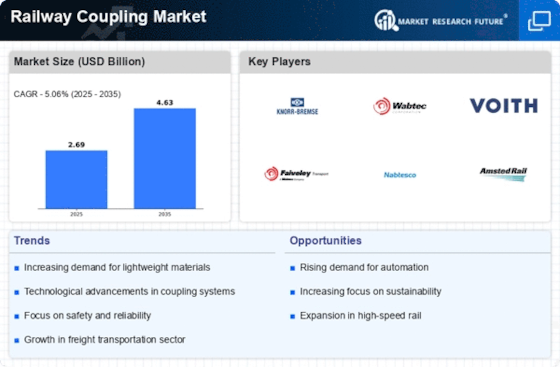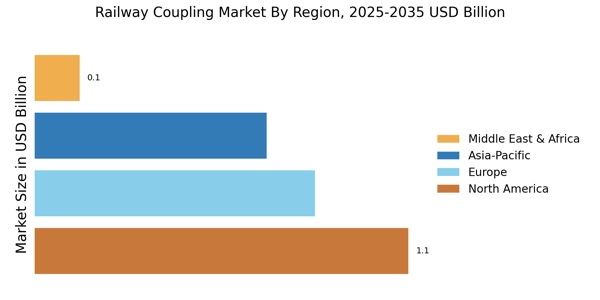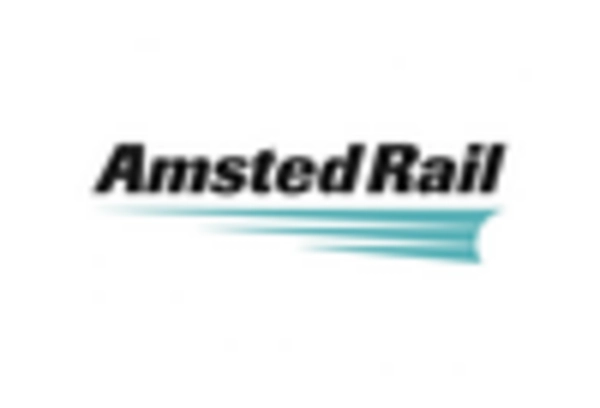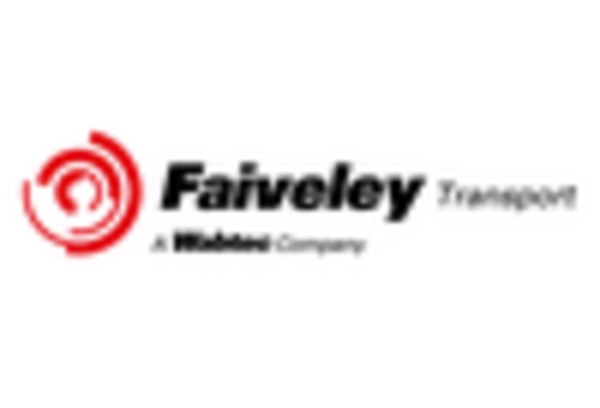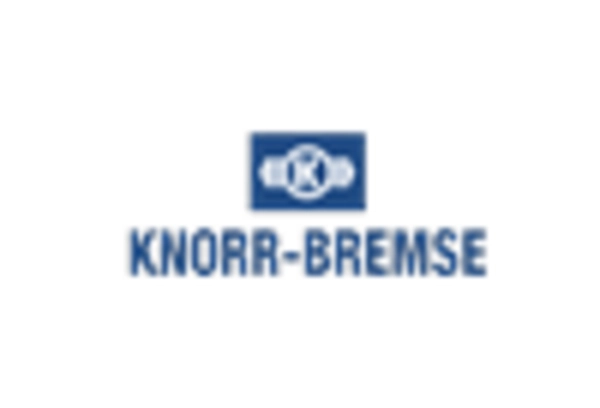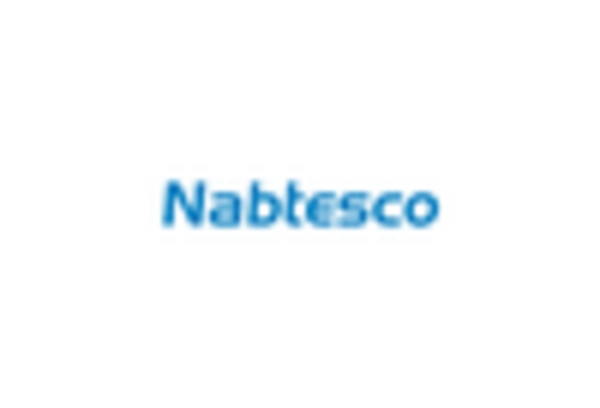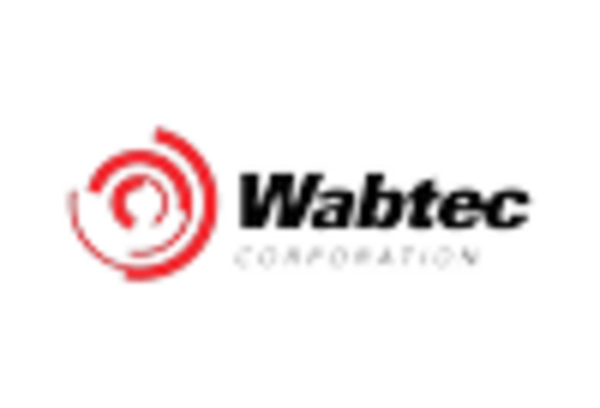Expansion of Freight Rail Services
The expansion of freight rail services is significantly influencing the Railway Coupling Market. As global trade continues to grow, the demand for efficient freight transport solutions is on the rise. Railways are increasingly being recognized as a cost-effective and environmentally friendly alternative to road transport. This shift is leading to the development of dedicated freight corridors and the enhancement of existing rail networks. According to industry forecasts, freight rail traffic is expected to increase by approximately 3% annually over the next decade. This growth necessitates the use of advanced coupling systems that can handle heavier loads and ensure seamless connectivity between freight cars. Consequently, the Railway Coupling Market is poised for growth as manufacturers respond to the evolving needs of the freight transport sector.
Growing Emphasis on Safety Standards
The growing emphasis on safety standards is a significant driver in the Railway Coupling Market. Regulatory bodies are increasingly mandating stringent safety protocols to minimize accidents and enhance the reliability of rail transport. This trend is prompting manufacturers to invest in the development of couplings that comply with these enhanced safety regulations. For instance, couplings that feature advanced locking mechanisms and fail-safe designs are becoming more prevalent. The market is witnessing a shift towards couplings that not only meet but exceed safety requirements, thereby ensuring the protection of both passengers and cargo. As safety becomes a paramount concern, the Railway Coupling Market is likely to see a rise in demand for innovative coupling solutions that prioritize safety without compromising on performance.
Government Investments in Rail Infrastructure
Government investments in rail infrastructure are playing a crucial role in shaping the Railway Coupling Market. Many countries are prioritizing the enhancement of their rail networks to improve connectivity and reduce congestion on roads. For instance, substantial funding has been allocated for the modernization of existing rail systems and the construction of new lines. This investment trend is expected to reach an estimated USD 100 billion by 2026, significantly impacting the demand for railway couplings. Enhanced infrastructure not only increases the volume of rail traffic but also necessitates the use of more robust and reliable coupling systems to ensure safety and efficiency. As governments continue to recognize the importance of rail transport in sustainable development, the Railway Coupling Market is likely to benefit from these initiatives, leading to a more resilient and advanced rail network.
Technological Innovations in Coupling Systems
Technological innovations are transforming the Railway Coupling Market, with advancements in materials and design enhancing the performance of coupling systems. The introduction of lightweight and high-strength materials, such as composites and advanced alloys, is enabling manufacturers to produce couplings that are not only more durable but also capable of handling increased loads. Furthermore, the integration of smart technologies, such as sensors and IoT capabilities, is allowing for real-time monitoring of coupling performance. This shift towards smart coupling systems is expected to improve safety and reduce maintenance costs. As the industry embraces these innovations, the Railway Coupling Market is likely to witness a paradigm shift, with a focus on developing couplings that meet the evolving demands of modern rail operations.
Increasing Demand for Efficient Transportation
The Railway Coupling Market is experiencing a surge in demand for efficient transportation solutions. As urbanization accelerates, the need for reliable and swift rail services becomes paramount. This trend is further fueled by the rising population and the corresponding increase in freight and passenger transport requirements. According to recent data, rail transport is projected to grow at a compound annual growth rate of approximately 4.5% over the next five years. This growth necessitates the adoption of advanced coupling systems that enhance operational efficiency and safety. Consequently, manufacturers are focusing on developing innovative coupling technologies that can withstand higher loads and provide better connectivity. The emphasis on efficiency in the Railway Coupling Market is likely to drive investments in research and development, leading to the introduction of more sophisticated coupling solutions.


